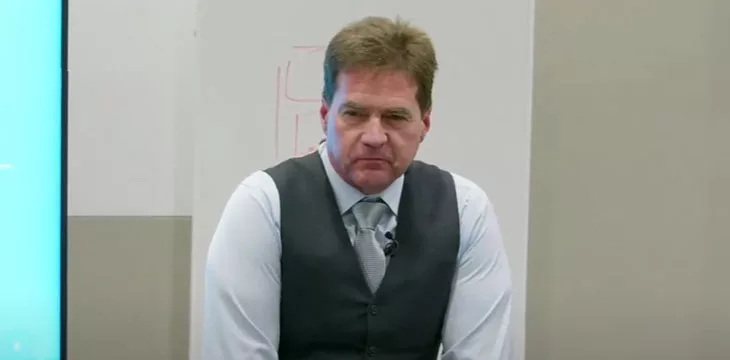|
Getting your Trinity Audio player ready...
|
Micropayments on the blockchain can create economic opportunities where none existed before. That has been a constant theme in The Bitcoin Masterclasses season 6 with Dr. Craig S. Wright. The second day of the series looks at practical applications and what should be built. There are several breakout sessions for the audience to imagine scenarios and brainstorm possible solutions.
The scenarios described here are ones where blockchain and digital payments are integrated into the broader world of government services and obligations. For much of the past decade, the conversation around Bitcoin and blockchain has described a separate and distinct system, separate from governments and banks. In fact, this has often been one of its selling points. But it hasn’t gained widespread adoption, partly because the general public has remained skeptical of a new form of money not endorsed by their local authorities and one often alien to their long-accepted habits with banking, savings, and payments.
These models may include official government currencies, often called “CBDCs,” although this term could cover any blockchain-based, government-sanctioned digital asset. These assets need to be connected to official government and business/financial services infrastructure to make them useful, and as such, require identification processes, the ability to pay taxes and receive services, verify data on the transfer of goods, and perform accounting tasks like invoicing and payroll. As mentioned in previous sessions, the ability to handle micropayments of less than one cent (or penny, yen, or peso) also creates new opportunities by massively increasing transaction volumes and liquidity.
‘Spatial inequality’: Where you live determines your access to the economy
Dr. Wright refers again to the concept of “spatial inequality”—meaning those living in some physical areas have more trouble making payments or accessing financial services than others. It could come from living on a smaller island or remote location, living in one country and needing to make a payment in another (with a different currency), or any other circumstance that makes the payment more expensive than a local one.
Throughout this series, Dr. Wright refers to the Philippines, where geography plays a large part in economic opportunity. It has a huge population of over 109 million, but is spread out over 7,641 islands. Some islands have large cities, others only small villages. Providing communications and financial infrastructure across the archipelago presents a challenge, but it’s one that blockchain can overcome.
Bitcoin and the blockchain remove most of this spatial inequality. Sure, access to online banking and credit cards also appear to do this, but you’ll often find extra costs involved. And not everyone has equal access to banking and credit cards.
There are hypothetical examples of how the Philippines government could create its own CBDC or other digital assets, organize land/vehicle registration, and organize insurance and access to healthcare, legal and corporate services. Recall that all this involves a combination of public and private data, which the blockchain must guarantee as widely available or confidential.
What physical and digital infrastructure would a country like the Philippines need? What servers and data centers would the government itself need to operate the network (the “sovereign nodes”), and how could nodes around the country communicate with them? Where are the rules set and extra data stored? Can IPv6 multicast addresses make it easier for local nodes to receive information? What data backups should exist and where?
“What is government actually for? Government should be open, transparent and for the people. I’m not going to get into this anti-government BS,” Dr. Wright says. Overcoming spatial inequality is something else governments should be concerned about, and “just move to a city” shouldn’t be the first suggestion. Unfortunately, it often is. Luckily, with blockchain technology, we can overcome geographical inequalities in ways we’ve never been able to in the past.
The seventh session of Bitcoin Masterclass season 6 (Day Two) starts here. You can view all of Day 1 and all previous seasons of Dr. Wright’s Bitcoin Masterclass series on the CoinGeek YouTube channel.
Watch Fintech Revolution Summit 2023: Blockchain tech is shaping the future of finance

 07-03-2025
07-03-2025 





